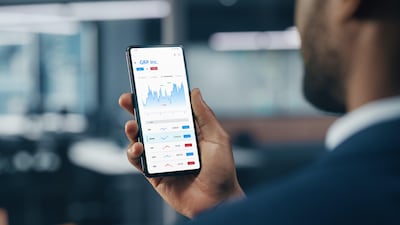Trading is as much about psychology as it is about strategy. Yet, despite knowing this, a lot of new traders get caught up on an emotional rollercoaster.
Without the right mindset, emotions such as fear, greed and frustration take over, leading to costly mistakes. It is estimated that about 80 per cent of new traders lose money in the market, many of them within their first year. So how do you stop emotions from sabotaging your trades?
Know your emotional triggers
The first step in managing emotions is simple: recognise them. I have seen it countless times – a trader starts panicking after a couple of losing trades, and before they know it, they are making rash decisions, either doubling down or pulling out of trades too early.
Or on the flip side, greed kicks in when they have had a few wins, and they start taking on more risk than their plan allows.
So, what are your triggers? Do you feel anxious when the market moves quickly? Do you feel an urge to make up for a loss? Once you are aware of them, you can start taking steps to control how you react in the heat of the moment.
Create (and stick to) a trading plan
If I could give one piece of advice to new traders, it would be this – have a plan and stick to it. A trading plan is your safety net, it gives you something to hold on to when emotions are running high.
A solid plan outlines everything from when to enter a trade, when to exit, and how much you are willing to risk. When emotions flare up, the plan reminds you to stay on course, instead of making decisions based on fear or greed.
Limit your exposure
Here is another critical point – do not risk too much on a single trade. One of the most common mistakes I see among new traders is overexposing themselves. It is tempting to go all in when you think you have a hot streak, but that is a fast way to lose everything.
The general rule of thumb is to only risk 10 per cent of your trading capital on any single trade. Why? Because it keeps you from putting all your eggs in one basket. With less at stake on each trade, the emotional highs and lows are much easier to manage.
Don’t let fatigue make decisions for you
Trading can be mentally exhausting, especially if you are glued to your screen for hours. Fatigue is your worst enemy when it comes to rational decision-making. When you are tired, your ability to think clearly drops, and your emotions take over. That is when mistakes happen.
One thing I tell my team and customers is to take regular breaks. Get up, move around, clear your head. Remember, trading is a marathon, not a sprint.
Learn from every trade
If you really want to improve as a trader – and keep your emotions in check – you have to learn from your past trades. Keeping a trading journal is a great way to do this.
Write down what you did, why you did it, and how you felt at the time. Over time, you will notice patterns – maybe you tend to rush into trades after a loss, or maybe you hold on to trades for too long out of fear of missing out.
Accept that losses are part of the game
One of the hardest truths in trading is that you are going to lose sometimes. And that is OK. Every trader, no matter how experienced, suffers losses.
The key is to accept this fact and not let it spiral into emotional decision-making. When you do not expect every trade to be a winner, it becomes easier to stay calm and stick to your strategy.
Your emotions are not the enemy
Emotions are not the enemy – they are part of what makes us human. By recognising your emotional triggers, sticking to a well-defined plan, limiting your exposure, and learning from every trade, you can stop emotions from getting the best of you.
Trading is not easy, but with the right mindset and approach, you can stay level-headed and make smarter, more rational decisions. And that is where real success lies.
Tony Hallside is chief executive of STP Partners

